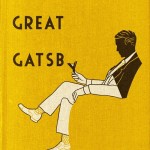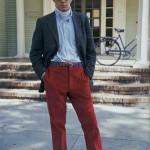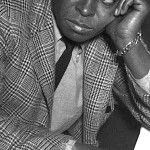We kick off a series of Gatsby posts with a piece I did for Ralph Lauren Magazine on Tommy Hitchcock, who served Fitzgerald as the model for Tom Buchanan.
My primary text for the article was the lone Hitchcock biography by Nelson Aldrich, Jr., who, in addition to writing the book “Old Money,” penned the 1979 Atlantic Monthly cover story on preppies we presented here a few years ago.
Hitchcock was rich, handsome, heroic and the world’s greatest polo player:
Back at home and lauded a war hero, Hitchcock enrolled at Harvard and spent time at Oxford before devoting himself to polo. With his home fields at the Meadow Brook Club in Westbury, he was the right man at the right time, dominating his era as Bill Tilden did in tennis and Bobby Jones did in golf. “Dressed for polo in shining boots and white breeches,” [writes Sarah Ballard in Sports Illustrated], “with a camel hair coat thrown over his muscular shoulders, Hitchcock appeared clothed where other men looked costumed.”
Head over here for the full story on the real American hero who, transformed in the imagination of F. Scott Fitzgerald, became a bigoted, selfish jerk. — CHRISTIAN CHENSVOLD











http://entertainment.time.com/2013/05/09/luhrmanns-the-great-gatsby-from-jazz-age-to-baz-age/?xid=gonewsedit&google_editors_picks=true
By reading the full article, it seems that Tommy Hitchcock also served as the inspiration for Fitzgerald’s aptly named character “Tommy” in Tender is the night.”
CC,
Excellent piece. I grew up on Long Island and knew the North Shore pretty well. If you’ve not yet spent a day driving around the North Shore it’s well worth it, especially if you have someone who can take you by many of the old mansions still standing. Some are open to the public, like Old Westbury Gardens, which was the Phipps estate. It’s remarkable to list the residents. They represent steel (Phipps) to railroads (Vanderbilt) to chemicals (the Grace family (J. Peter Jr. played polo for Yale)), to banking (J.P. Morgan) to automobiles (Walter Chrysler), to five & dime stores (F.W. Woolworth). But, perhaps you’ve done this already.
Again, excellent. I had no idea that Buchanan was based on anyone in particular until now.
(I don’t think anyone will much notice, but the P-51 picture caption is not right. If it matters I can give you the info. But it doesn’t affect the excellent quality of the writing.)
Well done CC. Nice piece. The short story, “The Rich Boy” is where FSF spells it out as follows:
“Let me tell you about the very rich. They are different from you and me. They possess and enjoy early, and it does something to them, makes them soft where we are hard, and cynical where we are trustful, in a way that, unless you were born rich, it is very difficult to understand. They think, deep in their hearts, that they are better than we are because we had to discover the compensations and refuges of life for ourselves. Even when they enter deep into our world or sink below us, they still think that they are better than we are. They are different.”
Very interesting piece – thanks CC.
Just a curiosity: how do we know that Hitchcock was the basis for Buchanan? Fitzgerald’s letters or journals?
Top drawer.
It’s usually customary to refer to this man as Tommy Hitchcock Jr. to distinguish him for his father, Hitchcock Sr., also an accomplished and historical polo figure. Interestingly, Jr’s mother was also an accomplished polo player.
FYI, polo goal ratings are are not like baseball statistics or golf handicaps, in determining a player’s goal ratings not only skill, but good sportsmanship is considered. Christian’s analogy of Tommy Hitchcock jr. to Tilden and Bobby Jones is very apropo, all gentlemenly jocks.
As if jazz weren’t bad enough, now we’re being led to believe that jocks have something to do with Ivy style.
@ Reactionary Trad
I understand your concern in re “jocks.” However, if you consider carefully the examples provided (Hitchcock, Tilden & Jones), I think you should be satisfied that a more accurate name for the group to which they belong is “sportsmen” rather than “jocks.” I would argue there is an enormous difference. Indeed, I think this is what MAC means by use of the adverb “gentlemanly.” Just some food for thought.
Being a musician, athlete, gentleman, sportsman or even scholar has little to do with ivy style.
Excellent piece, CC.
Incidentally, I thought Bruce Dern was miscast as Buchanan, if only because he’s not physical, and physically large, enough.
@MAC
As a freshman in the 1950s, my professors were gentlemen and scholars. I took them as my sartorial role models and I can assure you that–in New England at least–they knew that there was only one proper style.
@ Henry
I agree. Bruce Dern was not large or athletic enough for the Buchanan role, but he certainly was despicable enough. I think he fits the bill on that point.
I assume that RL edited your article to be toothless. Otherwise why not leave out the interesting part — where’d Hitchcock get the money?
Yes I know, I know. William Weld once asked “How did you get your money?” and answered “We don’t _get_ money. We _have_ money.”
Cute but obvious obfuscation approproate to a rich man running for public office But in the case of all those accolades about how “aristocratic” Hitchcock was, just snobby rubbish.
There’s a fine line between admiring good things (and yes rich people know how to buy good things and that is nice) and sucking-up to so-called aristocrats.
DS
Hitchcock Sr. was a very successful horse trainer, polo player and golf course / race track developer. His father was a “newspaper businessman”. Hitchcock Sr. married into the wealthy Eustis – Corcoran family. Hitchcock Sr. and his bride, both shared a love of horses, both are inductees in the Polo Hall of Fame.
Tommy Hitchcock Jr. was educated at St. Paul and Harvard. He married into the Mellon family and was on the board of Lehman Brothers.
Henry & Wiggles
I remember thinking WTF when seeing Dern as Buchanan. Dern has made a living as a smarmy low life villain character actor. I was disappointed Hollywood couldn’t cast an actor that could exude aristocracy while exhibiting severe character flaws. Don’t get me wrong, I like Dern when he does what he does best.
Decades ago I had to research Hitchcock for a college paper. An object of the high romantic fantasy during his era, he was cold-blooded and extremely reckless, taking suicidal risks as a flyer in World War I and a polo player thereafter. His risk-taking endangered others at least as much as himself; he was a man who could hurt you, who would hurt you and not care much about it one way or the other. There are terms for this sort of thing. But he had an exquisite pedigree, he wore wonderful clothes, he socialized only on the highest level, and could get away with out-snobbing some of the masters of the craft. He died relatively young, before his psyche ate him alive, allowing his image as the ultimate gentleman athlete to remain untarnished among those few who remember his name.
Hitchcock Jr. sounds like the perfect fighter pilot profile.
MAC,
Actually, as I understand it, modern flight surgeons would probably exclude Hitchcock, Jr. from flying anything, precisely because of his psychological profile.
I’ve known a lot of pilots, including fighter pilots, and they are not reckless, risk-taking sociopaths. Neither “Maverick” of Top Gun fame nor the officer of An Officer and a Gentleman would have been selected to fly in real life.
Henry
You are most likely correct for this time and age, when planes and pilots are a weapons system. In Hitchcock’s time and up to Nam, fighter pilots flew the planes by the seat of their khaki pants. Risk takers and sociopaths are two different things.
My father fought in three different wars as a fighter and recon pilot, he trained fighter pilots. He was a jet pilot when the US had less than 50. He and his comrades often mentioned that trainees lacking a certain edge were washed out of the fighter program. The trainees were competent pilots, just more suited for transports and bombers. This was no reflection on their bravery or commitment.
A better movie comparison would be “The Right Stuff”.
My great uncle, Reginald Sinclaire, was a friend and fellow polo player of Tommy Hitchcock. They were also in the Lafayette Escadrille together. Uncle Reg, an 8-goal handicap player, considered Hitchcock to be wild and reckless and not a gentleman on the field. Uncle Reg later decamped to Colorado, where he played at the Cheyenne Mountain Country Club.
Anyone that has seen a high handicap polo match, would think anyone playing the sport is reckless, it’s a potentially dangerous fast pace contact sport.
MAC, your father had quite an accomplished life in aviation! Well done. No doubt a man of the Greatest Generation.
Yes, that Generation, unfortunately he past on two years ago. I sure if he was still alive, I could get him on this forum and he would straighten us all out. 😉
I do miss him.
Now, we’ve proceeded from jazz and polo to idolizing the mılitary?
The figures given are far lower than reality:
http://www.bbc.co.uk/news/world-us-canada-22438928
Steel
You have a very low threshold for determining idolization.
@ MAC
Next, we’ll be idolizing racist, sexist frat-rats as Ivy heroes.
Granton was rather prescient there. Seems a bit of that did develop on the comment board